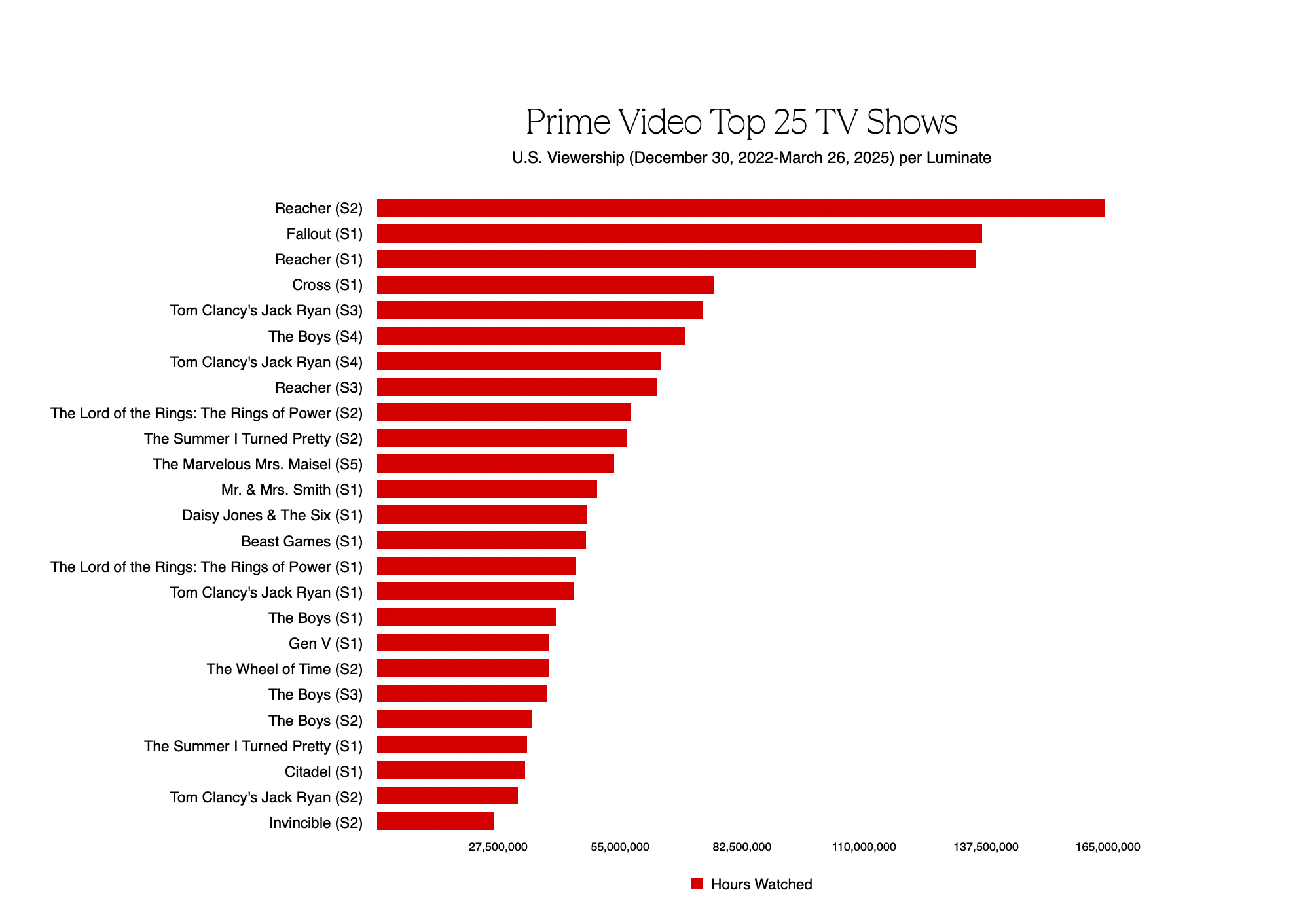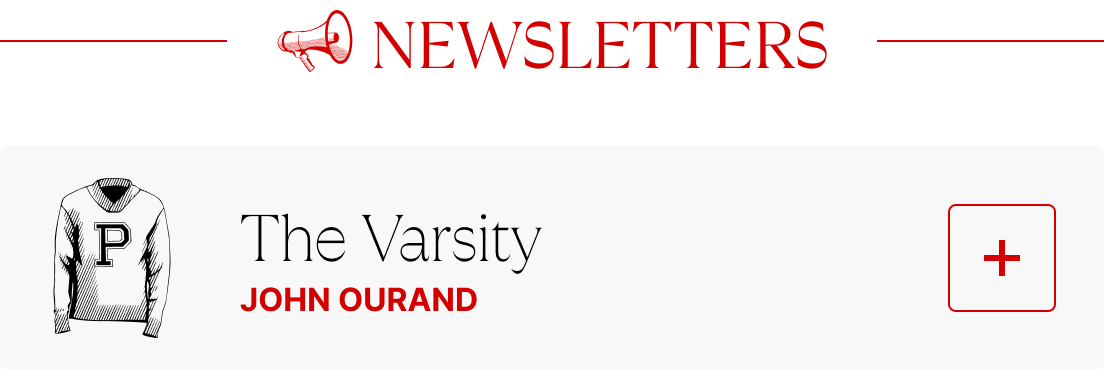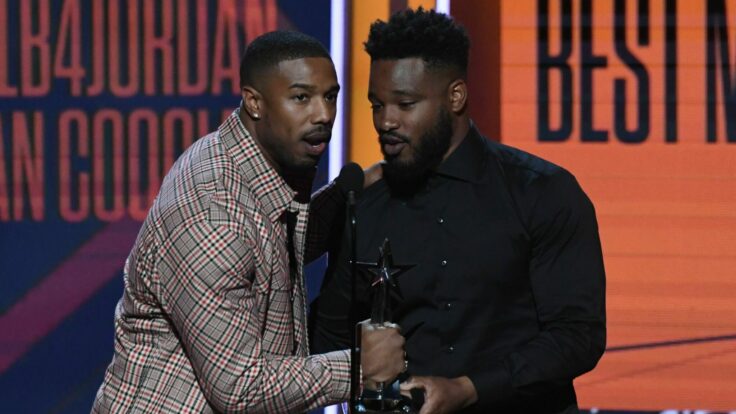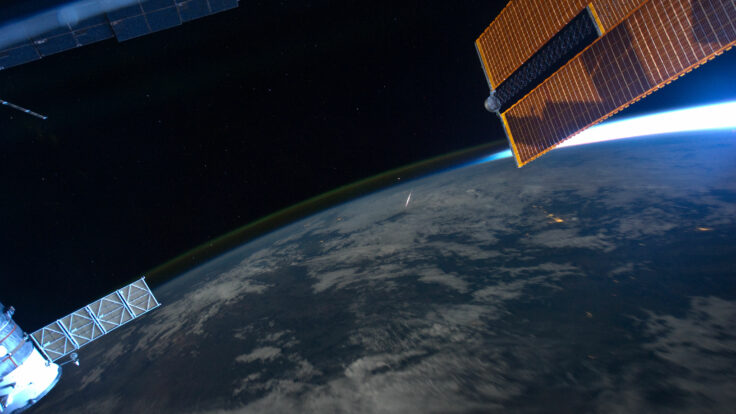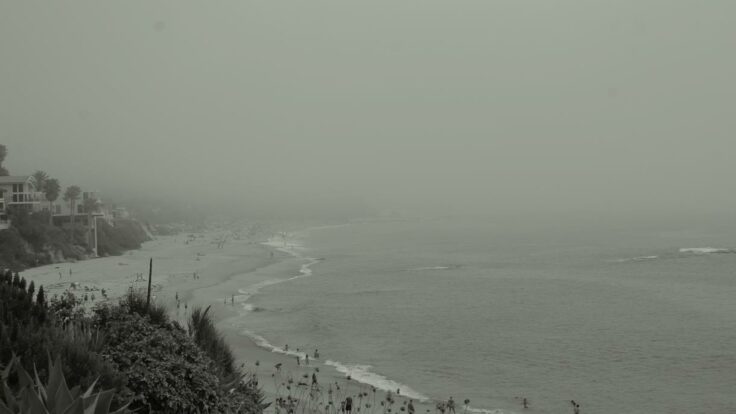Welcome back to a special Friday morning edition of What I’m
Hearing, delayed a bit following a very chaotic Thursday in Hollywood. Let’s get to it, but first…
💫💫 CinemaCon announcement!: I’ll be in Vegas next week for the theater convention, again moderating the “Industry Think Tank” program on Tuesday. Last year’s panel made lots of news, and
this year I’ve got Regal C.E.O. Eduardo Acuna, F1 director Joseph Kosinski, Universal distribution chief Peter Levinsohn, and Tom Quinn of Neon, introduced by Michael O’Leary of the newly rebranded Cinema United. It’s open to all CinemaCon badge-holders (sign up here), and we’ll record it for
an episode of The Town. Fun!
📺 Speaking of The Town, yes, that’s my voice—not A.I.!—ripping Seth Rogen and his Kool-Aid movie in the premiere of The Studio on Apple TV+. And no, I am not available to record audio takedowns of your friends to text them on their birthdays.
Still not a Puck member? Just click here. Got a news tip or an idea for me?
Just reply to this email or message me on Signal at 310-804-3198.
|
|
|
A MESSAGE FROM OUR SPONSOR
|
|
|
-
More on the Ari/Patrick uncoupling: The newly emancipated Endeavor executive chairman Patrick Whitesell is looking at another deal as the company’s owner, Silver Lake, takes it private. Whitesell plans to deploy a chunk of his Silver Lake–backed $250 million investment fund into another Silver Lake company, Diamond Baseball Holdings, I’m told. Endeavor previously backed DBH, which owns minor league baseball teams like the Louisville Bats and the Tulsa Drillers, but the
MLB players union didn’t love that Endeavor also owned an agency, WME, that repped players. (Sound familiar? That’s also why Endeavor is now off-loading its football agency to Whitesell personally.) So in 2022, Endeavor sold DBH to Silver Lake for $280 million, and now the Silver Lake–backed Whitesell is maneuvering for a stake in its sister company. Very incestuous. (A rep for Whitesell declined to comment; DBH didn’t respond. Usual disclosure: WME represents Puck but not me
personally.)
Whitesell’s still-unnamed vehicle (NotAriCo.? Ben&Matt Inc.?) is also making an investment in Peyton Manning’s Omaha Productions, the company announced. A lot of inbreeding with this one, too. WME reps Omaha, and Silver Lake C.E.O. Egon Durban’s courtship of Manning goes back to when the duo played golf at Augusta National last year. Omaha has raised $10 million from Peter Chernin’s North Road at a $400 million valuation, but
Whitesell/Silver Lake was willing to invest about $75 million for 10 percent, which, depending on how you calculate it, values Omaha at between $750 million and $800 million, post-money. Not bad for a celebrity-backed production company in a down market for celebrity-backed production companies. But Omaha has long-term deals with Disney/ESPN, Nationwide, and others, plus plans to grow beyond ManningCast and other shows. (It just
invested in a golf YouTube channel.) Given Peyton’s profile and the number of moneymen who have courted Omaha, I get why Whitesell pounced, even if the price was high. For one thing, Peyton Manning is far sexier for a first announcement than a company that owns the Rancho Cucamonga Quakes.
- YouTube pulling away from Netflix: YouTube, with 11.6 percent of streamer viewing time in February, jumped ahead of Disney in the latest Nielsen Gauge ranking of distributors. But let’s be honest, YouTube vs. Netflix is really the only engagement contest that matters, and in that bout, YouTube is extending its total streaming lead, per the below chart prepared by Puck’s Julia Alexander with data from Nielsen. Yes, the “share” of
streaming specific viewing has more to do with the growth of the streaming ecosystem overall. But in that context, YouTube’s platform is growing faster than Netflix…
|
-
Box office over/under: Of the five middling new releases, only Jason Statham’s A Working Man (co-written by Sly Stallone!) should get to double digits for Amazon/MGM. I’ll take the over on $10 million.
|
Now, the latest on the firing of Amazon’s top content executive…
|
|
|
The Amazon MGM Studios chief, one of the great
survivors of the streaming era, was already on borrowed time after a series of big-budget flops and the James Bond debacle sealed her fate. Now, with a new org chart, the heat’s on Prime Video’s Mike Hopkins, who no longer has Salke as a shield.
|
|
|
Well, at least Jen Salke doesn’t have to peddle the $40 million
Melania Trump movie. That’s a silver lining, I guess, amid yesterday’s unceremonious ouster of Amazon MGM Studios’ top content executive, steward of a $9 billion+ annual programming budget and one of the most powerful figures of the past decade in Hollywood. Like many of the exec firings lately, this one seems simultaneously abrupt and long overdue.
No, Salke’s deal wasn’t up. (Amazon doesn’t do contracts.) Yes, she had been in the role for more than seven often rocky
years and poured tens of billions of dollars into original film and TV, with less to show for it—both critically and commercially—than some of her rivals. This despite the power and ubiquity of Amazon Prime, and a video service that many of its more than 200 million subscribers consider to be “free.” Prime Video’s share of viewing on TVs in the U.S. has been stuck between 3 percent and 3.5 percent outside of the NFL season, according to Nielsen—above Max, Peacock, and Paramount+, but less than
half of Netflix and well behind Disney+/Hulu. With exceptions, big-budget shows tend to come and go on Prime Video with little viewership or buzz. Amazon won zero Emmys during September’s primetime telecast and was similarly shut out at the Oscars a few weeks ago. Multiple re-orgs sometimes left creatives wondering who was in charge of their shows or development deals. Top producers and agents often had trouble getting Salke to even call them back.
At the same time, the Amazon movie
strategy has seemed to be in near-constant flux. Earlier this month, Salke and film chief Courtenay Valenti went to SXSW to declare that the studio will release 12 or so movies in theaters starting next year. Great, except Salke made a virtually identical pledge back in 2023. Barbara Broccoli, controller of James Bond
and Amazon’s most important creative partner on the film side, openly disliked Salke (among others at Amazon) and refused to work with her, forcing the company to write a massive check to free up key I.P. it’d already paid $8.5 billion to own. A public embarrassment, even if it ended with Amazon fully controlling Bond, something all studios have long coveted.
Some of the struggles at Prime Video are due to its cluttered interface, its focus on upselling members to other streaming
services, and the perception that Prime is a hub for shopping, not watching shows. But it certainly doesn’t help when those shows are The Romanoffs, The Power, Dead Ringers, and The Peripheral. When the latest rumors spread earlier this month that Salke’s boss since 2020, Prime Video chief Mike Hopkins, was about to drop the guillotine, they were easy to shrug off, because murmurs have ebbed and flowed for years. Still, if Salke knew what was coming, she
was telegraphing business as usual, rehearsing her planned CinemaCon remarks with her marketing team as recently as this week. Next week’s movie presentation in Las Vegas and the upcoming TV upfronts in New York—and Hopkins’ reluctance to put an executive he was about to fire in front of thousands of key partners and the media—led to the timing of yesterday’s announcement, I’m told. (Amazon declined to comment beyond Hopkins’ internal email, in which he praised Salke and declared she
really wants to produce.)
|
In some ways, Salke has been one of the great executive survivors of the streaming era.
Recruited from NBC in 2018, in the aftermath of the firing of Roy Price over allegations of inappropriate behavior, Salke remained in place despite initial stumbles. (Remember when she went to Sundance and naively dropped nearly $50 million on niche films like Mindy Kaling’s Late Night and Shia LaBeouf’s Honey Boy that got ovations in Park City but promptly flopped with mainstream audiences?)
|
|
|
A MESSAGE FROM OUR SPONSOR
|
|
|
She had hits, of course, but she also endured some historically catastrophic flops,
insulated in part because Amazon steadfastly does not reveal consumption data, and the analysts that scrutinize Amazon rarely focus on the Prime Video operation, which represents a tiny fraction of the overall business. Still, within Hollywood, Salke often faced a steady drumbeat of internal and external questions about everything from her development strategy to her executive structure, and, at least for the past couple years, the widely held belief that Hopkins didn’t really
care for her taste or for the middling return on her lavish spending.
So let’s not do the thing where we rehash all the flops of the fired executive. Salke did transition Prime Video from the niche, indie-style prestige content that defined its early years—Emmy-winning shows like The Marvelous Mrs. Maisel and Transparent, and Oscar-bait movies like Manchester by the Sea and The Big Sick—through the Peak TV era of profligate, often wasteful
spending, to the more on-brand strategy it employs today: a mass-market platform with a few reliable Guy with a Gun shows (Reacher, Jack Ryan, Cross) and genre fare (The Boys, Fallout). But hits were sporadic, and its film division, with seemingly large ambitions and the MGM library, released very few titles that would make traditional studios (or even Netflix) jealous.
One Amazon source marveled yesterday that Salke survived more than two
years past the one-two punch of The Lord of the Rings: The Rings of Power and Citadel in a 2022-23 stretch. At founder Jeff Bezos’s insistence, Amazon had shelled out about $250 million for the Rings rights, plus another couple hundred million to make Season 1. And while it became Amazon’s top-performing show, the perception internally was disappointment—fine, but not exactly the new Game of Thrones, as Bezos coveted.
Then Salke dropped
$250 million on the production of Citadel, an international spy thriller series, during which the Russo brothers and writers Josh Appelbaum and Bryan Oh spiraled out of control and ended up presiding over separate versions of the same
show. Despite Citadel becoming a laughingstock around town and a poster child for Peak TV excess, Salke renewed the show. Including the foreign spinoffs, Citadel has now cost Amazon more than $500 million, per a company source, and helped spark media examinations of the “confusion and
frustrations”of the Salke era by Kim Masters and Lucas Shaw, one of which revealed that Amazon C.E.O.
Andy Jassy was finally scrutinizing Salke’s budgets. Together they illuminated the key question that plagued Salke’s regime: What, exactly, is a Prime Video show?
|
Salke didn’t really have an answer until well into her tenure, when the CBS-style crime
series Reacher really started working. (Perhaps because of that insecurity, Salke hated Kim’s story so much that she and her then-P.R. guy pulled millions of dollars in advertising from The Hollywood Reporter, a petty move that only drew more attention to the coverage and exemplified the short-sighted and vindictive Amazon media strategy. But I digress…)
Still, my favorite Salke move was giving Phoebe Waller-Bridge, the breakout creator of Fleabag, a $20 million-a-year overall deal
in 2019. Sure, the TV business is littered with failed overalls, but when Waller-Bridge generated nothing in three years, Salke renewed the deal. Now, three years after that renewal, she still has nothing to show for it. Tomb Raider, which Waller-Bridge has been working on and which Salke was personally overseeing after announcing a series pickup last May, has now gone through two writers rooms and tens of millions of dollars in development costs. There’s still no
script.
|
That’s a bad situation, but if there was a tipping point for Salke, it may have been the
whole Bond debacle. No single creator matters that much to any big studio any more, much less a massive company like Amazon. Sure, Warner Bros. certainly wishes it could get Chris Nolan back, and if Taylor Sheridan bailed on Paramount, it would be a huge blow to its TV business. But those companies will own and can make sequels to Inception and Yellowstone, respectively, now and forever, regardless of the involvement of their
creators.
By contrast, the Broccolis’ creative rights over Bond meant they controlled the key asset of MGM, which Hopkins had paid $8.5 billion to acquire, along with the rich library. Meaning that Salke, the supposed talent whisperer, alienated the one creator who actually mattered to Amazon. And even if she wasn’t the only one who used the C-word (content) to Barbara, a standoff that embarrassing kinda requires a public sacrifice. Even Bezos was pissed about the Bond situation.
(Contrary to a report out there, though, he never said “get rid of her” about Broccoli, and in fact, Barbara had been negotiating the Bond sale before the Journal reported that she called the Amazon people “fucking idiots,” which supposedly infuriated Bezos.) Regardless, maybe Hopkins could have torn up that check to the Broccolis had he made this call about Salke six months ago. Or maybe not.
It does say something about how Hopkins viewed Salke’s position (and her
performance) that, in his words yesterday, he’s going to “flatten our leadership structure a bit and not fill the head of studios role.” After all, Jassy has been heavily scrutinizing and eliminating management layers all across Amazon in an attempt to facilitate faster decision-making. And by having both film leader Valenti and TV chief Vernon Sanders report directly to Hopkins, as head of the whole Prime Video unit, the new executive structure now mirrors other traditional
studios like Disney and Warner Bros. Discovery. Of course, the move also puts added responsibility and pressure on Valenti, who was always a number two during her pre-Amazon career at Warner Bros., and especially on Sanders, who will no longer have Salke as his shield.
And, of course, there will now be more focus on and debate around Hopkins, a mild-mannered M.B.A. who led Hulu, Sony Pictures Television, and Fox Networks Group but has never been considered a creative executive in the
traditional sense. That may be an asset at a company like Amazon, which values the suits a lot more than it does the creatives. But he’s the decider now, and if another Citadel crosses Mike’s desk, he won’t have Jen Salke to blame for the decision to make or not make it.
|
See you Monday,
Matt
Got a question, comment, complaint, or favorite hotels and restaurants in Boulder? Email me at Matt@puck.news or call/text me at 310-804-3198.
|
|
|
Join Emmy Award-winning journalist Peter Hamby, along with the team of expert journalists at Puck, as they let you
in on the conversations insiders are having across the four corners of power in America: Wall Street, Washington, Silicon Valley, and Hollywood. Presented in partnership with Audacy, new episodes publish daily, Monday through Friday.
|
|
|
A professional-grade rundown on the business of sports from John Ourand, the industry’s preeminent journalist,
covering the leagues, players, agencies, media deals, and the egos fueling it all.
|
|
|
Need help? Review our FAQ page or contact us for assistance. For brand partnerships, email ads@puck.news.
You received this email because you signed up to receive emails from Puck, or as part of your Puck account associated with . To stop receiving this newsletter and/or manage all your email preferences, click here.
|
Puck is published by Heat Media LLC. 107 Greenwich St, New York, NY 10006
|
|
|
|
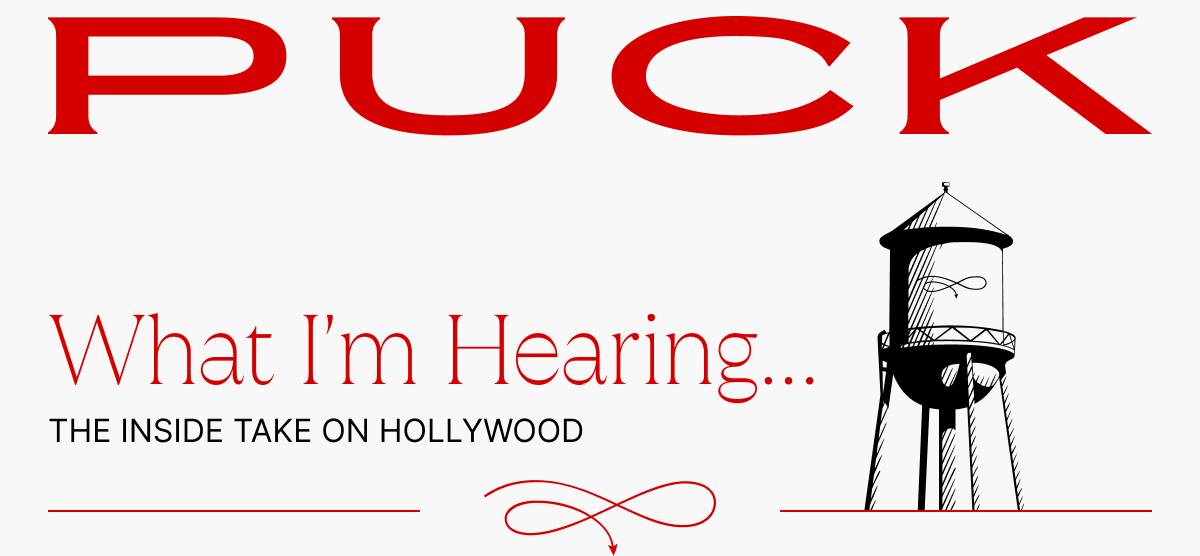

_01JPAFB5JAJVHVKXWAVHTDN7KE.jpg)
_01JPAFB58Q9Q0YQ9V2DVA9E0YN.jpg)
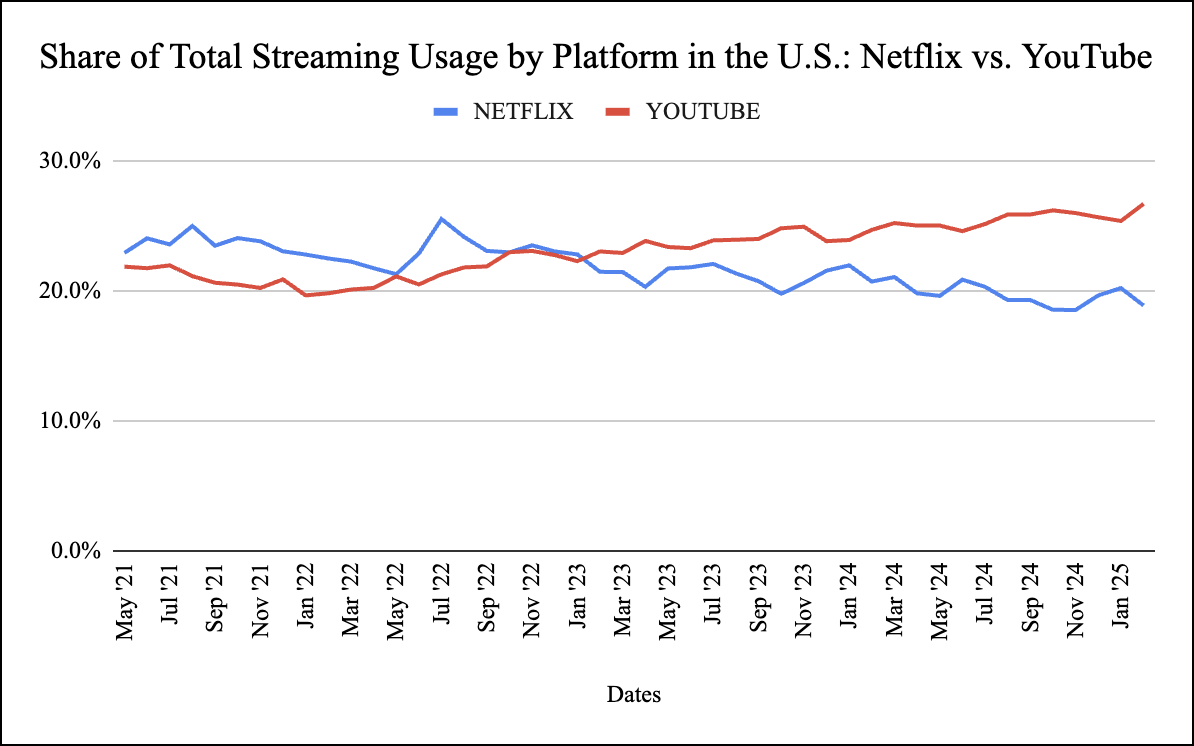
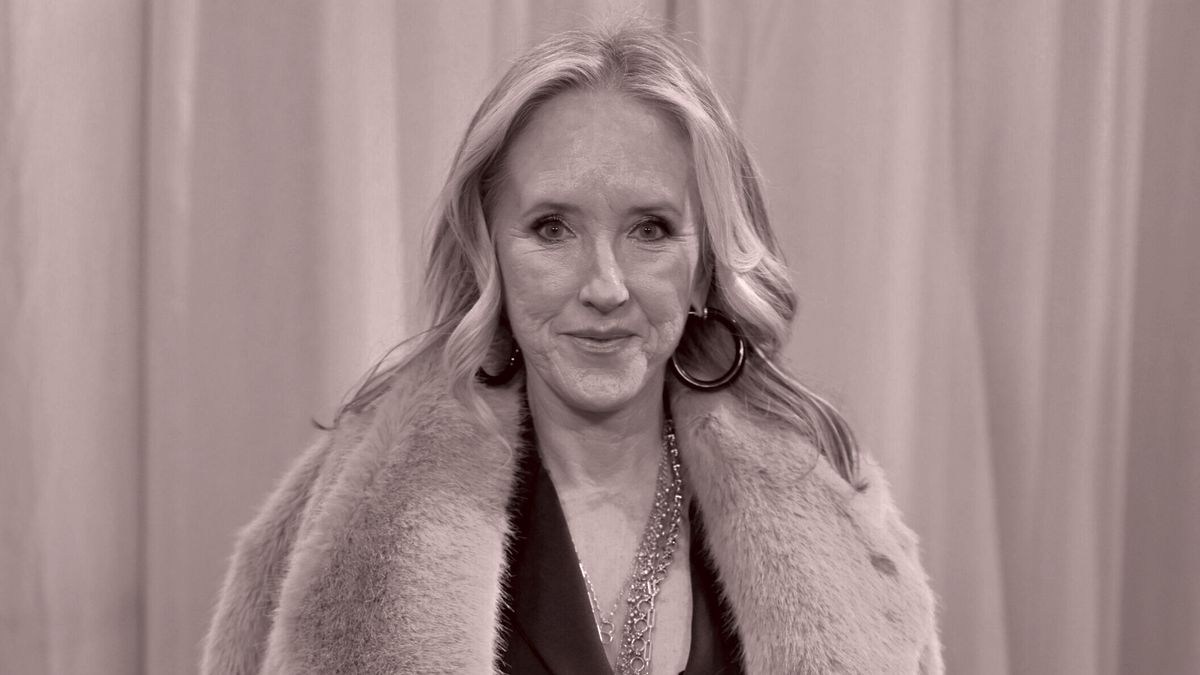
_01JPAFB4YA4B99AM79ENZG61YX.jpg)
_01JPAFB4M90TX1DEHZM9JJWB8D.jpg)
